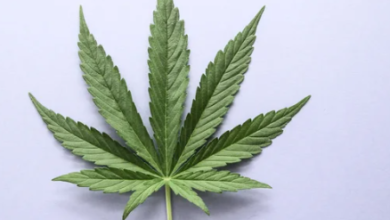Is CBD Legal in California?

The legal status of CBD in California presents a complex landscape shaped by both state and federal regulations. While hemp-derived CBD enjoys broad legality and accessibility, marijuana-derived CBD is tethered to stricter oversight, requiring transactions through licensed dispensaries. This distinction raises important questions about consumer safety and compliance with state labeling standards. As the market continues to evolve, understanding the nuances of these regulations becomes crucial for both consumers and businesses alike. What implications do these legal differences hold for the future of CBD products in the state?
Overview of CBD Legislation
The legal landscape for cannabidiol (CBD) in California has evolved significantly in recent years, shaped by a combination of state legislation and federal guidelines that delineate its use, production, and distribution.
Understanding CBD history reveals its transition from a stigmatized substance to a widely accepted health remedy, promoting potential health benefits such as pain relief and anxiety reduction, thereby influencing legislative frameworks across the state.
Hemp-Derived Vs. Marijuana-Derived CBD
Hemp-derived and marijuana-derived CBD represent two distinct categories of cannabidiol, each with unique legal implications, chemical compositions, and sources that significantly influence their production and use in California.
Hemp-derived CBD offers various hemp benefits, including potential anti-inflammatory properties.
In contrast, marijuana-derived CBD may produce psychoactive effects due to higher THC levels, thus impacting consumer choice and regulatory considerations within the state.
Purchasing CBD in California
In California, the process of purchasing CBD involves navigating a complex landscape shaped by the distinctions between hemp-derived and marijuana-derived products, each governed by specific regulations that affect availability, labeling, and consumer access.
Consumers can find CBD products at various retail locations, including health shops and dispensaries. However, they should remain vigilant about verifying product quality and compliance with state regulations to ensure a safe purchase.
Federal Vs. State Regulations
Navigating the legal landscape of CBD in California requires a thorough understanding of the contrasting regulations imposed by federal law and state law, which can often lead to confusion among consumers and businesses alike.
While federal restrictions classify CBD derived from hemp as legal, state compliance necessitates adherence to specific labeling, testing, and marketing standards, creating a complex interplay that demands careful navigation.
Conclusion
In conclusion, the legality of CBD in California is shaped by a complex interplay of state and federal regulations, distinguishing between hemp-derived and marijuana-derived products.
Notably, the Hemp Farming Act of 2018, which legalized hemp-derived CBD at the federal level, has contributed to a burgeoning market, with sales projected to reach $20 billion by 2024.
This statistic underscores the significant economic impact and growing consumer interest in CBD products, highlighting the need for continued regulatory clarity and consumer education.



